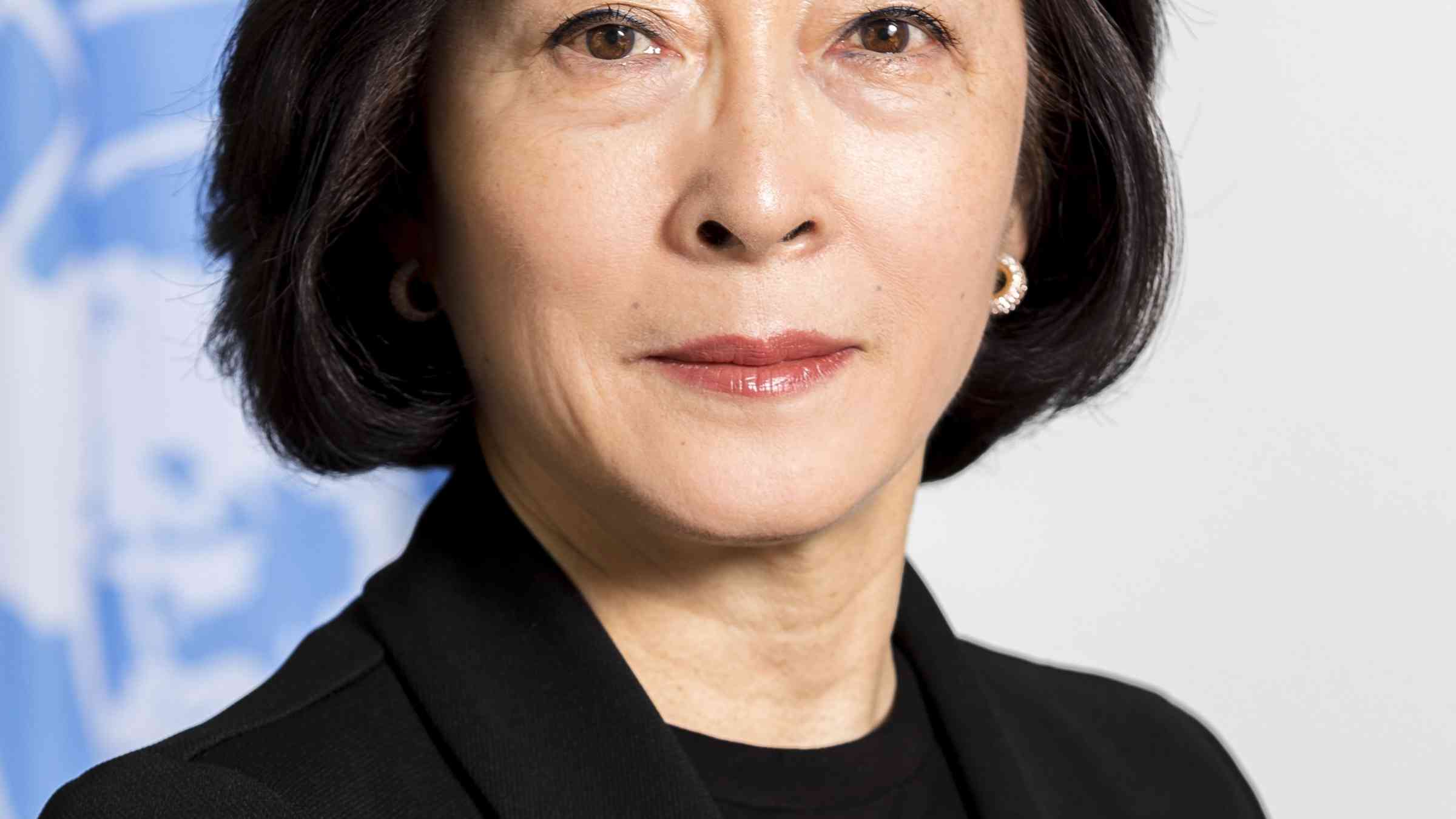SRSG Mizutori, Opening Remarks Regional Office for Africa, International Day for Disaster Risk Reduction Webinar: Disaster Risk Governance in Context of COVID-19

Mami Mizutori, UN Secretary-General's Special Representative for Disaster Risk Reductiion
(Check against delivery)
SRSG Mizutori, Opening Remarks
Regional Office for Africa, International Day for Disaster Risk Reduction Webinar: Disaster Risk Governance in Context of COVID-19
Tuesday 13 October 2020
Ladies and Gentlemen,
I am delighted to be taking part in this webinar and to welcome all of you watching and listening online.
I am particularly pleased to be joined today by Ambassador Sacko who is such a strong advocate for advancing the disaster risk reduction agenda across the continent.
I am equally delighted to announce that Italy has confirmed three million EUROS for the project entitled: “Strengthening early warning systems and transboundary risk management in Africa”.
These funds will be used to support the African Union, under Ambassador Sacko’s leadership to implement activities outlined in the Africa Early Warning Road Map.
The goal is to support the expansion of multi-hazard early warning systems across the continent and the emphasis will be very much on impact-based warnings that will trigger early action to reduce disaster losses.
Drought, pandemics, floods and storms do not recognise borders so there is a strong focus on transboundary risk management in this project.
If we have learned anything from the COVID-19 pandemic it is that early warnings must lead to early action something that many countries in Africa have been putting into effect when it comes to managing the risk of biological hazards based on experience of previous disease outbreaks.
We can all easily agree that this is an extraordinary time to be alive. COVID-19 is beyond anything experienced within living memory.
Long-standing norms have been upended.
The way we live and die.
The way we communicate with each other
The way we work. Or cannot work. Or even be educated as is the case for many.
Our lives have been transformed by the COVID-19 pandemic and the restraint it has imposed on human behaviour.
In addition, it is now estimated that it could cost the global economy some US$21 trillion. Current expenditure on disaster risk reduction pales into insignificance by comparison.
Considering these profound changes, it is only right that we use the occasion of International Day for Disaster Risk Reduction to ask hard question about our capacity to manage risk.
In many ways Africa is at the forefront of change when it comes to disaster risk reduction.
Africa is home to half of the world’s most risk-prone countries and is experiencing a rising number of disasters, including those associated with climate change. COVID-19 has brought to vivid life the concept of systemic risk and the way risk drivers overlap and interact with each other.
Last year saw the most devastating tropical cyclones to ever hit the continent. Cyclones Idai and Kenneth affected Mozambique, Zimbabwe, Malawi and Comoros and left more than 1,300 people dead, over two million in need of assistance and economic losses of over $2 billion.
Earlier this year as COVID-19 was gaining a foothold in Africa, floods and a desert locust infestation struck several countries in east Africa. As we speak, countries in East Africa are fighting against desert locust infestation-the worst in decades, threatening crops, food security and the livelihoods of millions of people in the region
The pandemic has also worsened poverty levels across the region and disrupted lives in ways that were unimaginable just 12 months ago.
At the same time, this region has produced some outstanding examples of how strong disaster risk governance executed with vision, competence, public trust and transparency, can avoid unnecessary loss of life.
Good disaster risk governance done well requires both imagination and common sense.
Good risk governance is important because we are in real danger of not achieving the Sendai Framework targets for reducing disaster losses, and we know that nothing undermines sustainable development like disasters.
In a moment you will be hearing more about the progress being made in Africa to achieve target E of the Sendai Framework and to put in place national and local strategies for disaster risk reduction, an essential first step towards strengthening disaster risk governance.
I am happy to note that at least 30 countries in the region have strategies already validated or under development.
This is the result of a concerted effort by Member States under the leadership of the African Union Commission and the Regional Economic Communities.
UNDRR and the AUC have initiated a process to revise the implementation matrix of the Programme of Action for the Implementation of the Sendai Framework in Africa over the next five years.
Once finalized and adopted, this framework will serve as a blueprint for Member States and Regional Economic Communities and other partners to strengthen disaster risk governance across the continent.
It is worth bearing in mind that even when countries had in place national disaster risk reduction strategies aligned with the Sendai Framework, they were overwhelmed by the enormity of the COVID-19 pandemic and the ensuing cascade of impacts across society.
We often say that the worst disaster that could happen, has not happened yet.
Let us bear that in mind as we discuss the lessons learned from COVID-19 and seek to understand what is required to strengthen disaster risk governance across the region.
Thank you for your attention.
Explore further
Is this page useful?
Yes No Report an issue on this pageThank you. If you have 2 minutes, we would benefit from additional feedback (link opens in a new window).